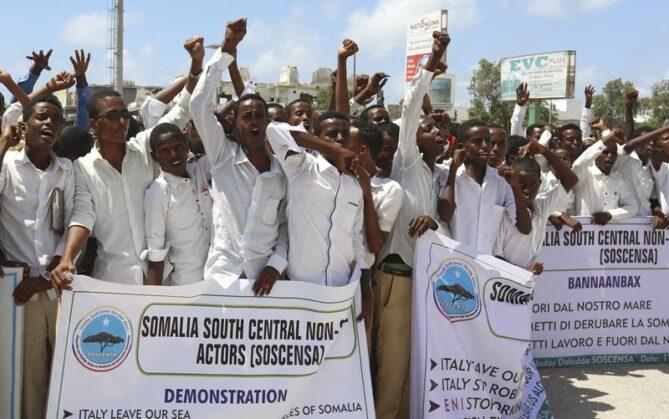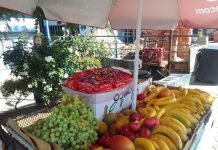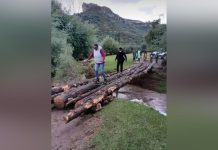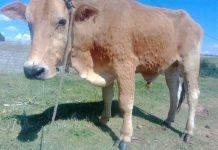Africa-Press – Lesotho. As the continent arguably most affected by the problem of ‘stolen fish’, Africa could secure food for its people while providing the blueprint for victory, according to the findings of a Blue Paper commissioned by the High Level Panel for a Sustainable Ocean Economy and launched this February at the African Union meeting.
Africa is forging a plan to benefit from its seas, secure food for its people and in turn help address a major global problem. Africa’s once fertile seas are under tremendous pressure.
Human impact on the marine environment has resulted in biodiversity loss, widespread pollution, ecosystem degradation and depleted fish stocks, all exacerbated by climate change and increasing global fish consumption. At the same time, there are opportunities lost in food and nutritional security for all Africans.
These critical marine issues are unfolding against the backdrop of illicit marine trade, now commonly referred to as illegal, unreported and unregulated (IUU) fishing, a term used to underscore the multi-faceted problem.
A global problem estimated to cost between 10–23 billion USD in losses annually, IUU fishing disproportionately impacts developing coastal states, disrupting the societal and environmental fabric within coastal communities, including in Africa, where, despite the efforts of many of the 34 coastal African nations, one in four fish is still caught illegally.
The illicit trade in the marine resources of West Africa is estimated to cost the region nearly $1.95bn across the fish value chain and $593m per year in lost household income.
This obviously has implications for food and nutritional security. As President Kenyatta of Kenya stated: “seafood is of particular economic and social value to us as a readily available and relatively affordable source of protein.
” IUU fishing presents barriers to sustainably sourcing food from the sea.
Addressing IUU fishing, in combination with proactive measures to reform fisheries management and accelerate development of sustainable marine aquaculture will unlock opportunities to solve grave issues on our continent such as malnutrition.
As the continent arguably most affected by the problem of ‘stolen fish’, we must join together and commit to advancing a sustainable ocean economy, one where protecting the ocean is a means of producing more from it to enable prosperity for all.
A new research paper, Illegal, Unreported and Unregulated Fishing and Associated Drivers, commissioned by the High Level Panel for a Sustainable Ocean Economy and launched at this month’s African Union Meeting, aims to shift the global narrative on IUU fishing towards practical solutions by outlining key remaining challenges and underscoring advances made over the past two decades that can dismantle the economic incentives for IUU fishing and support concrete measures governments can adopt.
Specifically, the multiple expert-authored paper underlines that the use of inexpensive technology, sharing of information, improving international cooperation and implementing existing port controls are the best ways to tackle IUU fishing.
Cost-effective technologies are now available to help identify suspected wrongdoing and provide an opportunity for a paradigm shift in compliance in fisheries.
These emerging public monitoring tools such as Global Fishing Watch, OceanMind and Skylight use public and non-public data and provide new capabilities to identify and monitor activities enabling governments to prioritise enforcement efforts and take immediate and effective action to tackle IUU fishing.
Additionally, through public-private partnership, there is an opportunity to ensure end-to-end traceability to vessels, aquaculture farms, harvesters and retailers so as to ensure all seafood in the supply chain is safe and legally sourced. Radical transparency is needed in the fisheries sector and regional cooperation is central to progress.
Increasing transparency of vessel-related information is an important step towards adopting a minimum standard for fishing access agreements between any African state and any third country, thereby levelling the playing field for all and working towards assuring the sustainability of fisheries and the economy of African coastal states.
This could be achieved by all African countries openly publishing their vessel registries as well as fishing access agreements with foreign countries.
Better control of ports is key to eliminating IUU fishing. Monitoring vessels as they enter ports, through inspections for example, is easier and more cost-effective than monitoring vessels at sea. There are existing mechanisms that countries can engage with to combat IUU fishing. One of these is the UN FAO Port State Measures Agreement (PSMA).
Adopting and enforcing the PSMA presents a cost-effective means to reduce IUU fishing as it gives the 66 countries that are parties to the agreement the power to deny vessel entry to port if they are known to have conducted IUU fishing.
This system is similar to international border control. Instead of a passport being checked, a vessel’s name, flag state, registration and compliance with fisheries regulations and authorisations can be checked.
If there is evidence of rule breaking or a suspected problem the vessel can be denied entry or inspected. If documents are in order a vessel will be able to enter the same way a person would at a border when they pass a security check.
Currently only 23 African countries have ratified this agreement. If all African countries were to ratify, then no one African state could be deemed more favourable by illegal fishing operators than another.
At the beginning of a new decade, with deadlines approaching for the UN Development Goals, African nations have a major opportunity to capitalise on the new wave of thinking and turn the tide on illegal, unreported and unregulated fishing practices.
For More News And Analysis About Lesotho Follow Africa-Press






